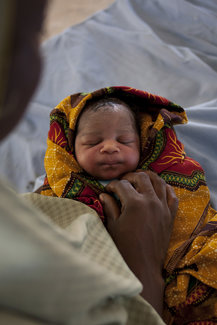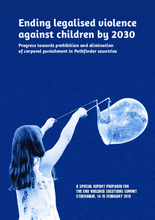

Displaying 231 - 240 of 634
The state government of Lagos, Nigeria has introduced an economic strengthening initiative to support households caring for orphans and vulnerable children, according to this article from PM News Nigeria.
Prepared for the Agenda 2030 for Children: End Violence Solutions Summit, held in Stockholm, Sweden, on 14-15 February 2018, this report tracks progress towards prohibition and elimination of corporal punishment of children in Pathfinding countries.
Through this study, data were collected through interviews with 23 care leavers in Ghana to examine their challenges and the factors that influence their coping mechanisms.
The House of Assembly of the State of Kaduna in Nigeria has passed into law a new Child Protection and Welfare Bill, according to this article from Channels Television.
The government of the state of Lagos in Nigeria has issued an ultimatum to unregistered children's homes in the state, calling on them to register with the authorities within 14 days "or risk forfeiture of their facilities," according to this article from Naija 247 News.
UNICEF is seeking a Child Protection Specialist in Senegal.
UNICEF is seeking a Child Protection Specialist in Nigeria.
UNICEF is seeking a Child Protection Specialist (Violence and Exploitation) in Senegal.
"The Kaduna State Government has banned fostering and adoption of children due to abuses by orphanage homes in the state, the Commissioner for Women Affairs and Social Development, Hajiya Hafsat Baba, has said."
This study explores violence experienced by children with disabilities based on data collected from four countries in West Africa- Guinea, Niger, Sierra Leone, and Togo.


